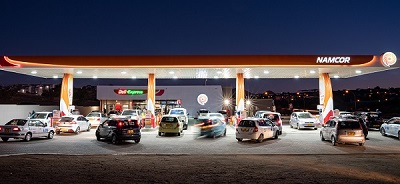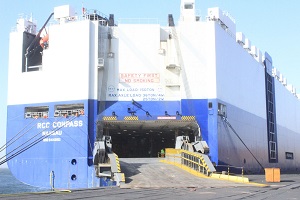
Revolutionize the Namcor fuel levy – reward profitable state-owned enterprises

By Josef Kefas Sheehama.
Mines and Energy Minister, Honourable Tom Alweendo has revealed that the government is looking to cancel the Namcor levy by taking steps to remove this fuel levy and, in turn, create a wider range of discounted offerings at the pumps.
The Namcor levy was 7.6 cents for every litre of fuel sold in Namibia before it was cut to 3.8 cents to ease the consumer’s burden.
The policy changes that affect fuel prices will obviously affect households that consume fuels. Furthermore, fuel levy increases not only affect the price of fuels consumed by households but also the price of other goods consumed because of the impact on the fuel inputs of these goods. The Namcor fuel levy has been replaced by a viable alternative source of income, Namcor’s own retail outlets in towns such as Windhoek and Otavi amongst others. This means Namcor entered the distribution and marketing of petroleum products, through commercial markets.
We applaud the Government for this positive development. The plan to cancel the fuel levy is a manifestation of government and stakeholder’s rendezvous to revamp the economy through austerity measures as enshrined in the NDPs and in HPP. This comes amid concerns from a cross-section of the public about the impact of rising fuel cost on the general cost of living.
It is important to note that the fuel levy funds are not necessarily ring-fenced for roads and transport. The money goes into the Namcor pot, to be used and allocated in the best way to manage the country’s petroleum affairs.
Another point, on 21 September 2015 as per the Ministry of Mines and Energy website, it was stated that, “The fund was established in 1990 and its levies comprise an equalisation levy (Petroleum levy charged at 73 cents per litre and 87 cents on petrol and diesel. The levy consists of a Namcor levy (7,6 cents per litre), a strategic oil storage levy (40 cents on petrol and 50 cents on diesel), a fuel marking levy (2 cents) and an electricity levy (1,08 c/kWh). It also subsidizes the transport of fuel to rural areas to ensure the equalisation of fuel prices countrywide”.
I, therefore, commend Minister Alweendo for making this bold decision. With the pressure lifted by removing part of the levy on fuel, the economy will in all likelihood also have room to grow. If coupled with deregulation of the labour market and making other moves to improve the ease of doing business, government may end up with higher revenues as more taxpayers enter higher levels of income across the board.
The Road Fund Administration’s and the MVA Fund’s levies are to remain at 74 cents and 37.72 cents respectively. Consider it an essential, because it is. It should therefore be allowed. The biggest possibly negative consequence of removing certain levies from fuel would be that Namcor will lose a huge source of revenue. But we have so many taxes already that the government must consider to abolish all fuel levies.
We rely on our vehicles to get to and from work daily. And if this good proposal is not considered, it will not only impact transport costs but also things such as bus and taxi fares which will increase inflationary pressure on other commodities that rely on road transport.
The Electricity Control Board (ECB) has approved an average electricity tariff increase of 7.6% for the 2022/2023 financial year. It is unclear how long the cost of living crisis will last. Therefore, we support the minister for coming up with this innovative idea, and it is our sincere hope that it will usher in some extraordinary outcomes, both for Namibians and the business sector dealing with oil.
Moreover, transforming State-Owned Enterprises into profit machines from secondary sources are vital. The reforms revolved around delivering intense policy changes to state-owned enterprises (SOEs), so that they will no longer rely on taxpayers funding just to keep operating, since generating profits would spur expansion with added investments. And if the SOE’s did not succeed, they must expect to go bankrupt, while more private-funded companies would take over.
SOEs reform should prevent poorly-run organizations from staying afloat, but to make them more stream-lined, efficient and profitable. The chief executives of loss-making state-owned enterprises must explain to the government why they deserve more subsidies while those that are generating a profit must be rewarded. Success breeds success, while failures are minimized.
Rather opt to expand the economy to an inclusive stronger economy than protecting the run-down, poorly managed, bankrupt state-owned enterprises to save a few jobs but thereby bankrupting the government, and missing out on creating a lot more new job opportunities and a wider spread of poverty relief. What we stand and fight for today, will surely effect the well-being of our children tomorrow. Therefore, Namcor’s diversification strategy will achieve higher sales volumes and increase profits. Well done.
To that end, the move will spare the country from hitting high inflation and will relieve Namibians, who would otherwise had to dig deeper into their pockets. I, therefore, believe that removing this fuel levy will not only create a huge lifeline for ordinary citizens but will also stimulate business and commercial activities in the economy which have been hardest hit by the upward rise of fuel prices.















































